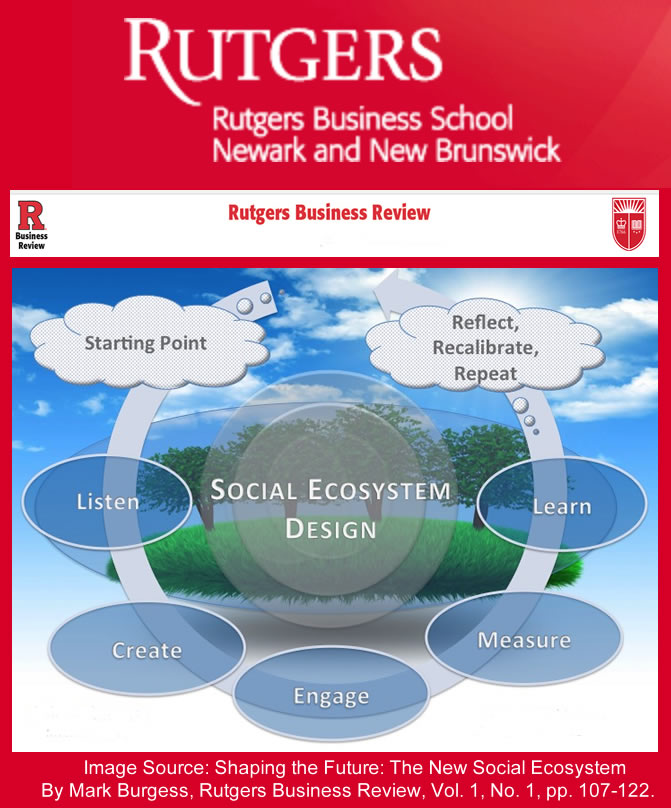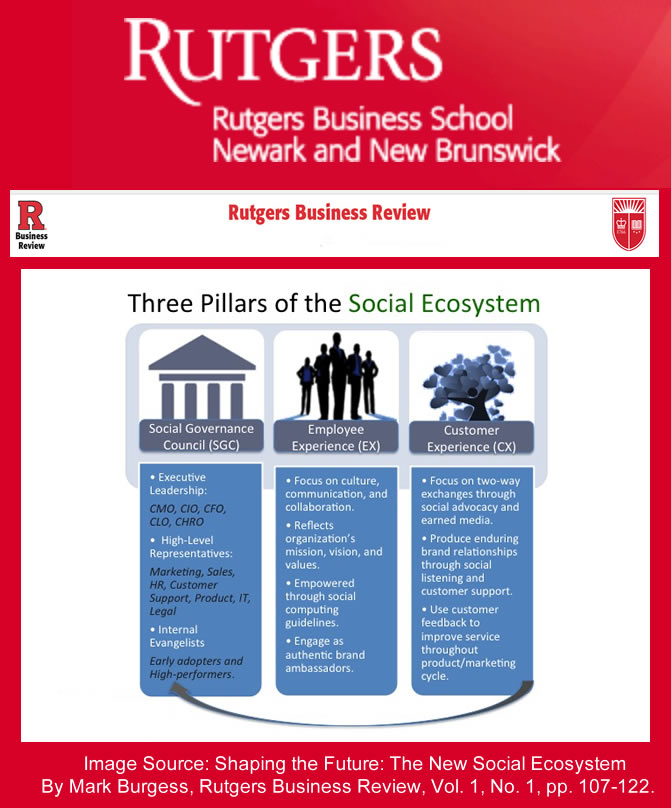The conversation around social media and the workplace is evolving at a rapid pace. In the early part of the decade, everyone was focused on the concept of the social business. Another realization soon followed: In order to have a social business, you have to have social employees. But while an essential tenet of social employee culture is individual empowerment, having a well-positioned mentor or two certainly can’t hurt.
Enter the social leader, the player/coach ready to show their fellow employees how to engage in the digital bazaar, build a personal brand, and use internal communication tools to both inspire and collaborate with their coworkers. As the saying goes, the best way to learn is to do—and the social leader is the embodiment of this philosophy. Here’s how it works:
As demonstrated by our work with the Economist Intelligence Unit and IBM, social leadership is a foundational concept to us at Blue Focus Marketing (@BlueFocus). Social engagement—whether with internal or external stakeholders—is at its core an experience-based process. Theory and best practices help, but the real learning comes in the application of this knowledge.
This is what makes social leaders so important. They’ve scouted ahead, taken the risks, and established winning practices for others to learn by example. They’re the ideal guides, opening doors and offering counsel, but letting aspiring social employees take the lead on their own.
The best social leaders:
- Ask questions. Yes, social leaders are coaches at their core, but how do you coach if you don’t know what your players need to learn? Good social leaders are naturally curious. They want to know what concerns others have on the social adoption curve so that they can focus their expertise in particular areas.
- Start conversations. Answering a pressing question is always helpful, but more important for skills acquisition and critical thinking is putting that question into a larger conversation. Then, within this conversation, they can share their experiences, the questions they had, and the solutions they came up with. Then they will open the conversation to their communities. What would others do in the same situation? Is there a better way to do things?
- Seeks mentors. The social ecosystem is only growing. There is a lot to learn, and while no one can possibly become an expert in all of it, social leaders want to know as much as they can, and they will seek out the brightest stars in order to find them. As they say, if you’re the smartest person in the room, find a different room.
The best social leaders are both learners and teachers, seeking places where they can build their knowledge and then share that knowledge with others.
What is your organization doing to build social leaders? Share your thoughts on social leadership in the comments below.













